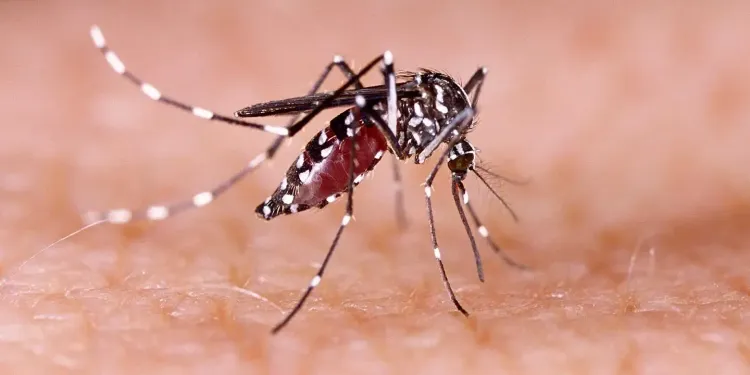How Are Dengue Cases Rising in Manipur?

Synopsis
Key Takeaways
- 102 new dengue cases reported in Manipur.
- Total cases for 2025 now at 2,585.
- 91% increase in cases compared to last year.
- Authorities emphasize the need for cleanliness and prevention.
- Symptoms include high fever and body aches.
Imphal, Oct 16 (NationPress) In a worrying development, 102 additional individuals tested positive for dengue across six out of the 16 districts in Manipur on Thursday, according to officials.
A report from the Health and Family Welfare Department indicates that this year, a total of 2,585 cases of dengue have been recorded in the state, with one fatality reported from Bishnupur district related to the mosquito-borne illness.
Health officials noted that the number of dengue-positive cases has surged by 91 percent compared to the same timeframe last year (2024). The report detailed that 2,585 positive cases emerged between January 1 and October 12, out of 6,093 individuals tested for the virus.
This year has seen an alarming increase of 1,232 cases, compared to the 1,353 dengue cases registered during the same period in 2024.
Among the 16 districts, Imphal West has the highest count with 1,839 cases, followed by Imphal East with 434, Bishnupur with 79, Thoubal with 67, Senapati with 45, Kakching with 37, and Ukhrul with 23.
The districts most affected include Imphal West, Imphal East, Bishnupur, and Thoubal, all located in the densely populated Imphal Valley, while the hill districts of Senapati, Kakching, and Ukhrul are also facing challenges.
The report indicates that the only dengue-related death occurred in Bishnupur. Health officials stated that, following the guidelines from the National Vector Borne Disease Control Programme (NVBDCP), efforts are underway to address the situation.
The increasing number of dengue cases, particularly in the Imphal Valley region, raises significant concerns regarding the disease's spread. The official attributed this rise to prolonged monsoon rains and stagnant water, creating perfect breeding grounds for the Aedes mosquito.
In response, the Health and Family Welfare Department has ramped up vector control initiatives, including fogging operations and public awareness campaigns in affected areas.
Authorities, including municipal bodies and the Urban Development Department, have urged residents to maintain cleanliness, eliminate stagnant water, and utilize mosquito repellents and nets to prevent further transmission.
Officials also recommend that anyone exhibiting symptoms such as high fever, body aches, or rashes seek immediate medical attention to avert complications.










